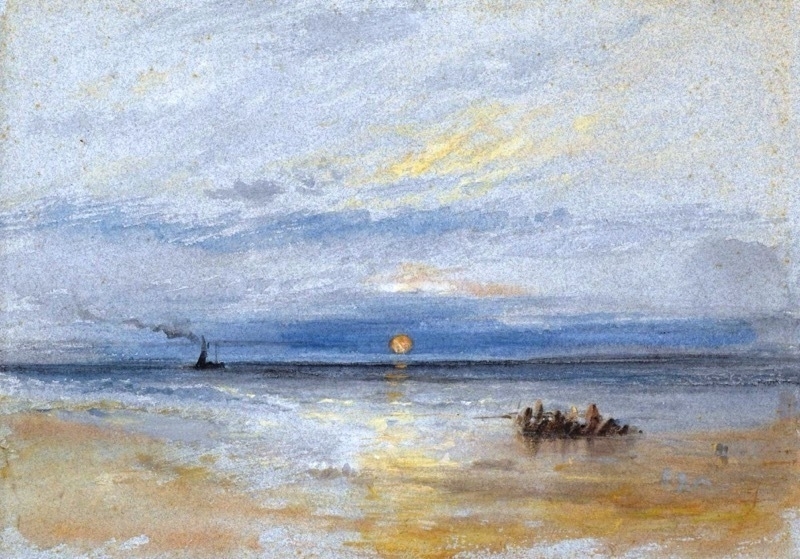This post by Ed Simon marking the 150th anniversary of Thomas Mann’s birth reminds me that I have some pretty interesting posts — if I do say so myself — on Mann at my big blog.
Several replies to my newsletter wanting — perhaps demanding is the word — pictures of Angus. Your wish is my command.

I wrote a longish essay on the “total action” of the detective story — and what obligations the author of such a story has (or doesn’t have) to it.
When Busman’s Honeymoon, the play co-written by Sayers and Muriel St Clare Byrne, opened in London it did so at the Comedy Theatre … which reminds me that decades later that venue would stage many Harold Pinter plays, and Pinter became its major patron. After a while he started hinting that the place should change its name to the Pinter Theatre. When management resisted, Tom Stoppard wrote to Pinter with a suggestion for resolving the impasse: “Have you considered changing your name to Harold Comedy?” (Lo and behold, the name was changed to the Harold Pinter Theatre, but only after the poor man’s death.)
Sometime in September 1935 Sayers finished Gaudy Night and sent it to her publisher, Gollancz. Victor Gollancz wired Sayers on 26 September to say that he very much liked the book. It was immediately copyedited, typeset, and printed, and hit the bookstores on 4 November. To any writer today that sounds impossible: Surely it was published in November 1936?? Nope: it went from submission to publication in little over a month.
In late 1936 the publishers Hodder & Stoughton asked Dorothy L. Sayers to complete the novel Dickens left unfinished at his death, The Mystery of Edwin Drood. Sayers firmly declined, saying “nothing could induce” her to try that. But of the many people who have completed the novel, none of them were as well-suited to the task she she was. I regret her decision.
This week has turned out to be more complicated than I thought it would be, so I won’t be able to do my audio posts on Paradise Lost. But I have something better: the brilliant essays written some years ago by my friend Jessica Martin — in fact, I believe I got to know Jessica and her husband Francis Spufford through these essays, which I praised when I first read them — to introduce new readers to the poem:
Reading this series was what got me thinking about writing a book on Paradise Lost, which I had already been teaching for decades.

J. M. W. Turner, Coastal view at sunset with fishing boat returning to port
In 2014 I suggested that people ask themselves a question:
How would you act politically — what kinds of arguments would you make, what kinds of laws would you support, what means of persuasion would you use — if you knew that those whom you most despise will at some point hold the reins of political power in your country?
My dear mother-in-law, Margaret Collins, is one hundred and one years old. Here’s the email she just sent me — the general context being my wife Teri’s frequent visits home to Alabama to help her brother and sister-in-law care for her mother:
Dear Alan,
We are looking forward to seeing you and Wesley next week. Maybe we'll have some dry weather by then. Teri said you had rain there, which I hear is prized in Waco.
Alan, for some time I have wanted to tell you how much I have appreciated your being so gracious and generous concerning Teri's visits. She is such a joy and very helpful. It gives Lynn and Anne a little break from the care of this old lady, too.
I am so proud of you and your many accomplishments. You don't just have them handed to you — it takes much hard work and “staying the course.” I believe your best days are still ahead.
May God bless, guide and reveal His love for you in all the years ahead.
I love you and keep you in my prayers,
Mama C
Is that not adorable? I’ve written in the past about being welcomed into the Collins family.
I have a quite distinct memory of writing a long post, at some point fifteen years ago or so, on Rex Stout’s Nero Wolfe novels. But I can’t find anything, on my hard drive or via web search: not turning up on Kagi or Google or DuckDuckGo or the Wayback Machine. Very strange. But I do have the consolation of this from Google:

Yes. Those are precisely the traits I am known for.
John Gruber: “This year I again extended my usual invitation to Apple, but, for the first time since 2015, they declined.” Apple execs demonstrating classic addict behavior here: When the people who love you best tell you you have a problem, cut off the people who love you best.
Once I get the hang of this podcasting thing I’m gonna start calling myself the showrunner of ayjay.org.
As I explain at the beginning of this, um, episode? — I guess it’s an episode — I don’t know how to podcast, I don’t even know how I want to podcast, but I’m giving it a try, because I’ve promised my Buy Me a Coffee supporters that I would do a series about Paradise Lost in preparation for the release of my new book. Consider this a trial run and wish me well as I stumble along!
I’m so pleased to see that Resentment, the first — but I hope not the last — feature film to be written and directed by my friend Noah Millman, is about to be released!
Statement of principles:
- There’s no such thing as “artificial intelligence”
- Chatbot interfaces to LLMs are exceptionally prone to abuse in many ways, intellectual and ethical
- Chatbot interfaces to LLMs are in some circumstances extremely useful
- There’s an inverse relationship between (a) habitual reliance on LLMs and (b) appropriate use of LLMs
I wrote about the plusses and minuses of Gioiatopia.
I can’t think of an example, in the last decade or so, of compute and capability moving closer to the user, rather than farther away. In the data center, engineers have devised powerful, resilient systems … so your phone and laptop (and refrigerator?) run great as long as they can connect. A supercomputer in your pocket, a supersupercomputer on the banks of the Columbia River, and, tying them together: a thread.